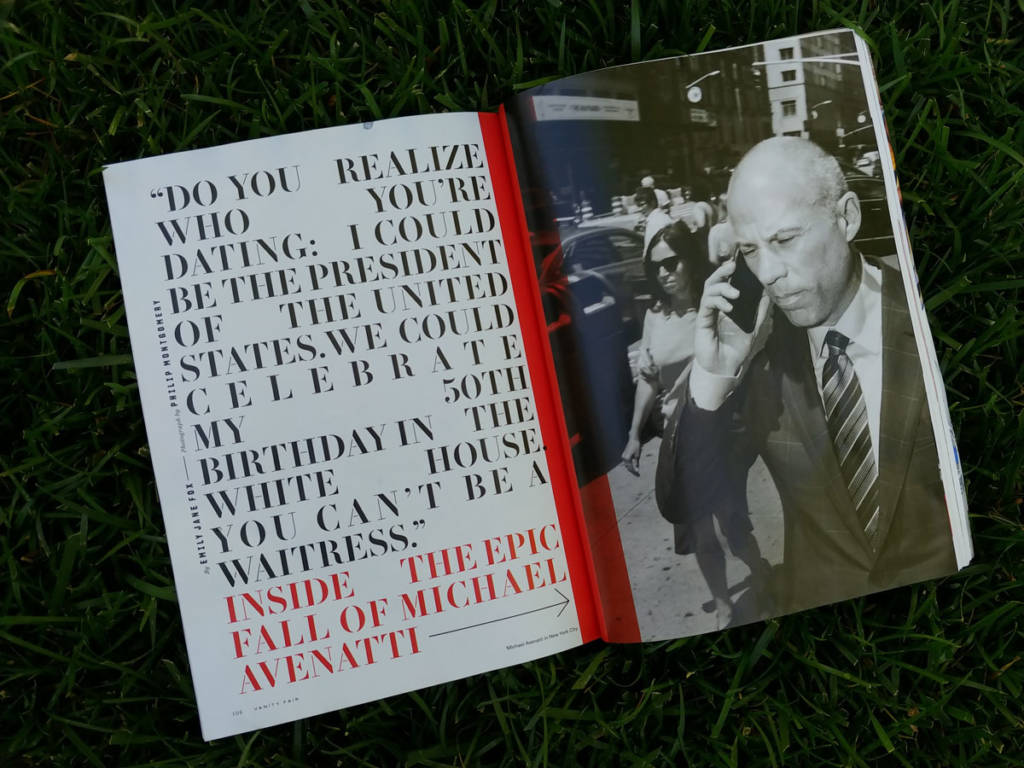
Emily Jane Fox’s excellent story on Michael Avenatti in the Summer 2019 Vanity Fair has lots of great information on the famed, now legally embroiled lawyer best known for representing Stormy Daniels and antagonizing Donald Trump. It covers his wicked temper, his alleged financial misdealing, his incendiary romantic relationships and a whole lot more.
It’s all interesting, but seeing as he’s not running for office, it’s not news you can use. What you might be able to use is the simple fact that he sat down for a couple of interviews with Fox knowing full well that she was going to write a story that would most certainly throw a lot of shade his way.
“My attorneys though this was a terrible idea and that I should not do it under any circumstances,” Avenatti told Fox — and Fox told us all.
Avenatti’s attorneys were wrong. Read the story. He doesn’t come off looking great. But you know what? He got to defend himself. Now admittedly, this is a highly charismatic trial lawyer with a mountain of media experience, and a man with an extraordinary facility for obfuscation and spin. So he knew where to tiptoe and where not to step at all. But after nearly every allegation Fox related — as a fine reporter would, she chased down all sorts of people with nightmare Avenatti stories — Fox lets Avenatti say his piece. She then lets the reader balance the allegations with the rebuttals, which again is good journalism — and to these eyes, the allegations came out on top.
Wrapping up with how Avenatti deals with the bad days now crowding out the good ones, she closes with this:
I asked what it was like on those days. What did he do. “Chin up,” he said. “Keep your feet moving. As soon as you put your head down or your feet stop moving, they tackle you.”
Now imagine if Avenatti hadn’t talked to Fox — that he’d issued the standard “no comment,” which would have begotten the standard “Avenatti declined to be interviewed despite multiple requests” in Fox’s copy. You think she would have closed with anything remotely along those lines?
The lesson is that, if she’s going to do the story with or without you, and you’re not going to look good either way, you’re better off talking to the reporter. You make that personal connection and the reporter won’t see you as the cartoon villain your detractors will make you out to be — even if the facts point to a bit of villainy.
